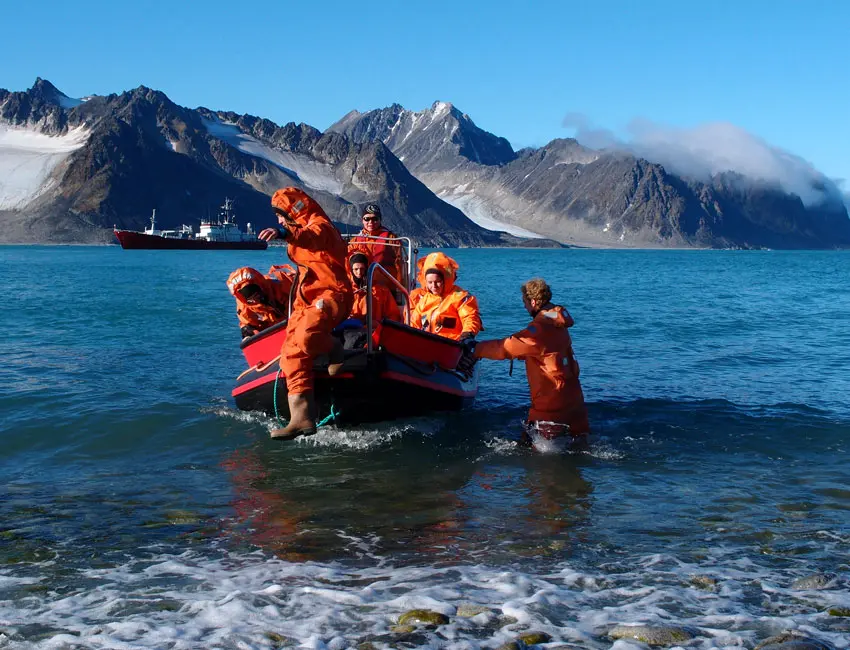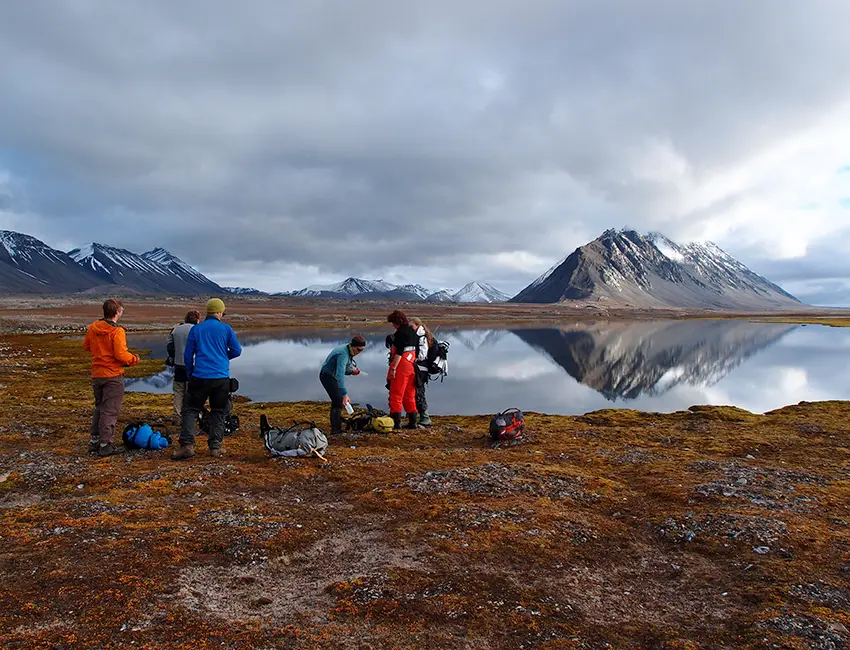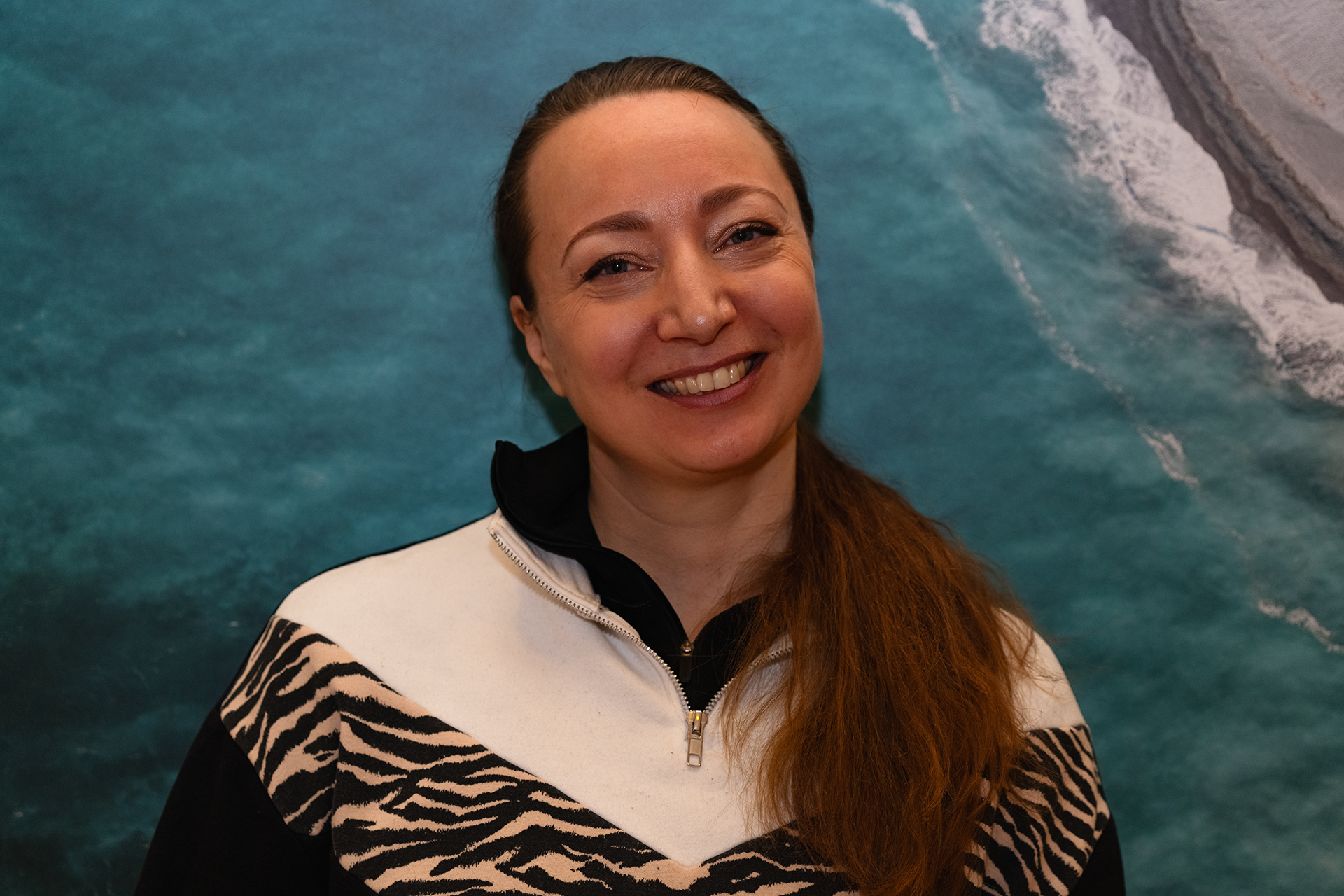AB-201 Terrestrial Arctic Biology (15 ECTS)
ID:
AB-201
CREDITS:
15 ECTS
APPLICATION DEADLINE:
March 01, 2025
START DATE:
July 28, 2025
END DATE:
December 12, 2025
COURSE PERIOD:
Autumn semester. Teaching block 5-7

AB-201 students performing fieldwork in Ny-Ålesund. Photo: Steve Coulson/UNIS.
| Grade: | Letter grade (A through F) |
| Course Cost: | Fieldwork, NOK 1200 (6 days x NOK 200 per overnight stay) |
| Course Capacity Min/Max: | 10/20 students |
| Language of instruction: | English |
| Examination support material: | Bilingual dictionary between English and mother tongue, one page hand-written notes, project report. |
Course requirements
60 ECTS within general natural sciences, of which 30 ECTS within the field of biology. The applicant must be enrolled in a program at Bachelor level, or document that the courses are approved into the applicant’s current study program.
Basic knowledge of the statistical program R will be advantageous.
This course should be combined with AB-204 Arctic Population Ecology (15 ECTS), as the two courses are designed to complement each other.
Academic content
This course will introduce its participants to terrestrial organisms in the Arctic. Key taxonomic groups characterizing Arctic terrestrial ecosystems will be studied, with a focus on their diversity, origins, adaptations to/ interactions with their environment and with each other. These groups will be represented by, but are not limited to, vascular plants, mammals, birds, and invertebrates. Their biology will be discussed in relation to past, current, and future climate.
Course participants will have the opportunity to physically visit a few Arctic terrestrial habitat types and learn various data and sample collection techniques focusing on current scientific questions and paradigms. Course participants will learn how to plan and conduct simple scientific projects. The course will guide its participants through basic data handling tools (collection, analysis, interpretation, and presentation) and confront them with reading scientific literature and writing scientific texts.
Learning outcomes
Upon completing the course, the students can:
Knowledge
- list, classify and compare evolutionary adaptations of different taxonomic groups to Arctic conditions
- identify and describe ecological and trophic interactions between taxonomic groups, and discuss how various abiotic factors, including climate change, may affect this interplay
- explain and contrast the biogeographic origin and evolutionary development of key terrestrial taxonomic groups from the Arctic
Skills
- plan and prepare campaigns for data and sample collection in the Arctic
- perform basic field and/ or laboratory techniques to generate ecologically relevant datasets
- use the statistical program R for simple data analyses
- design and present a scientific report based upon collected field data
General competences
- critically evaluate, present, and discuss scientific literature within Arctic ecology
- present own work through written reports and oral presentations
- constructively review work of their peers
- demonstrate workload management and share information within a group
Learning activities
The course will extend over 2.5 months, including compulsory safety training as preparation for field excursions and lab exercises.
Course participants will be divided into groups and given the responsibility to develop and conduct a small research project under guidance, resulting in one scientific report per group and a final oral group presentation of that report. Work on these projects will continue throughout the duration of the course in parallel to other learning activities (lectures, seminars, lab work etc.) and introduce students to research methodology including collection, analysis, interpretation, and presentation of scientific data. To collect data and samples for the reports, about 6 consecutive full days of excursions are planned during the first few weeks of the course. After the excursions, collected samples will be treated and analyzed in the lab, and basic lab work routines and techniques will be practiced. Based on both field and lab work, basic data handling and processing steps with the computer program R! will be practiced and applied. In parallel to project work, a series of lectures, student driven seminars, literature discussions, etc. will be given throughout the course duration. Experts in their fields will be invited to teach individual topics and taxonomic groups. Course participants will additionally be expected to read, evaluate and debate scientific literature. Content of these learning activities will be required knowledge for the oral exam.
Summary
- Total lecture hours: 30 hours
- Total seminar hours: 30 hours
- Laboratory work: 3 days
- Field work: ca 6 days
Compulsory learning activities
Seminars, Group assignments (report), Lab work, Student presentations, Safety training
Assessment
- All assessments must be passed in order to pass the course.
- Each assessment is graded, and subsequently combined into a single grade. Partial grades for each assessment will be available.
| Method | Percentage of final grade |
|---|---|
| Written report (group work) | 40% |
| Referee report (individual) | 10% |
| Written exam (individual) | 50% |
Student life


